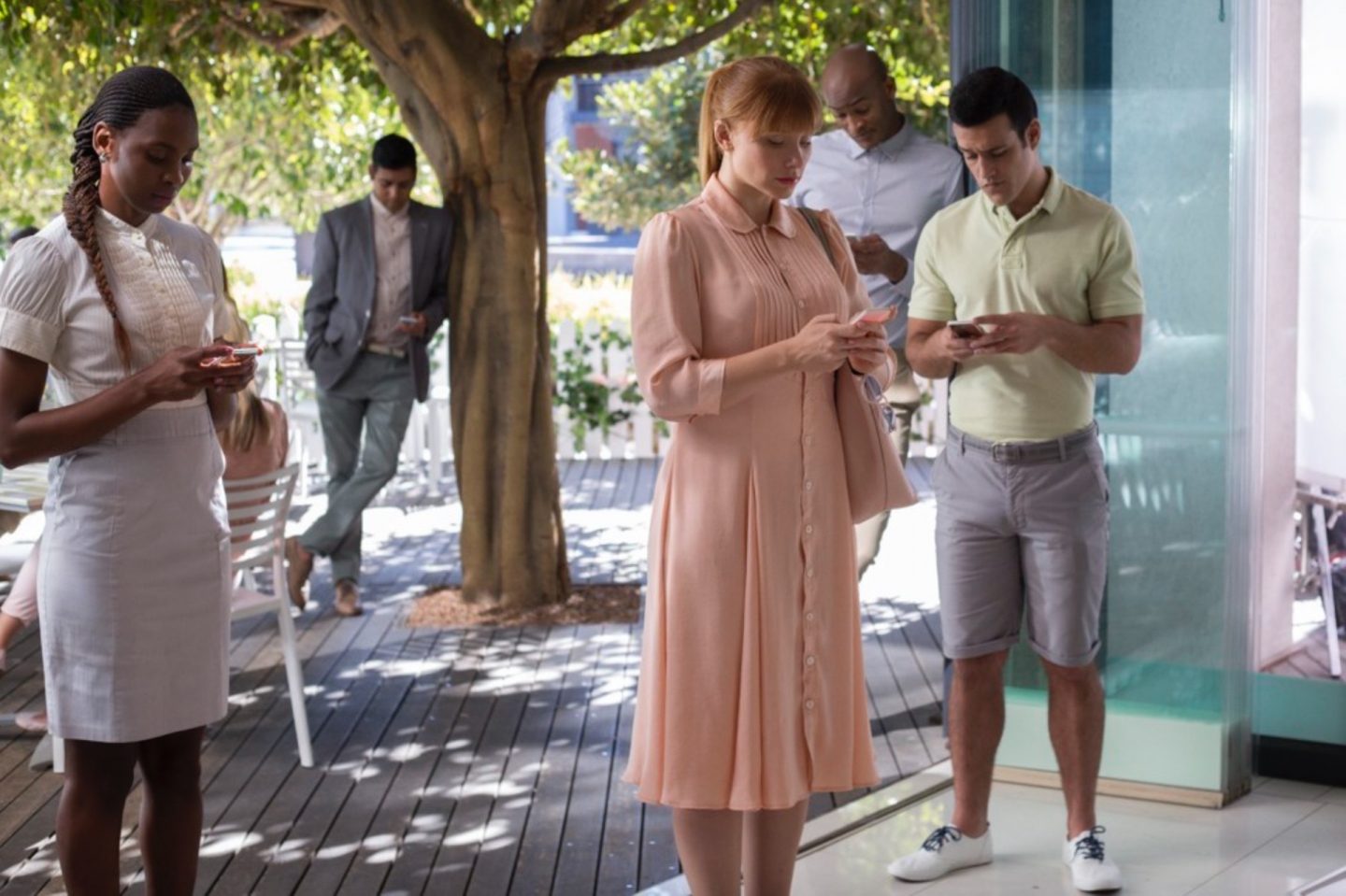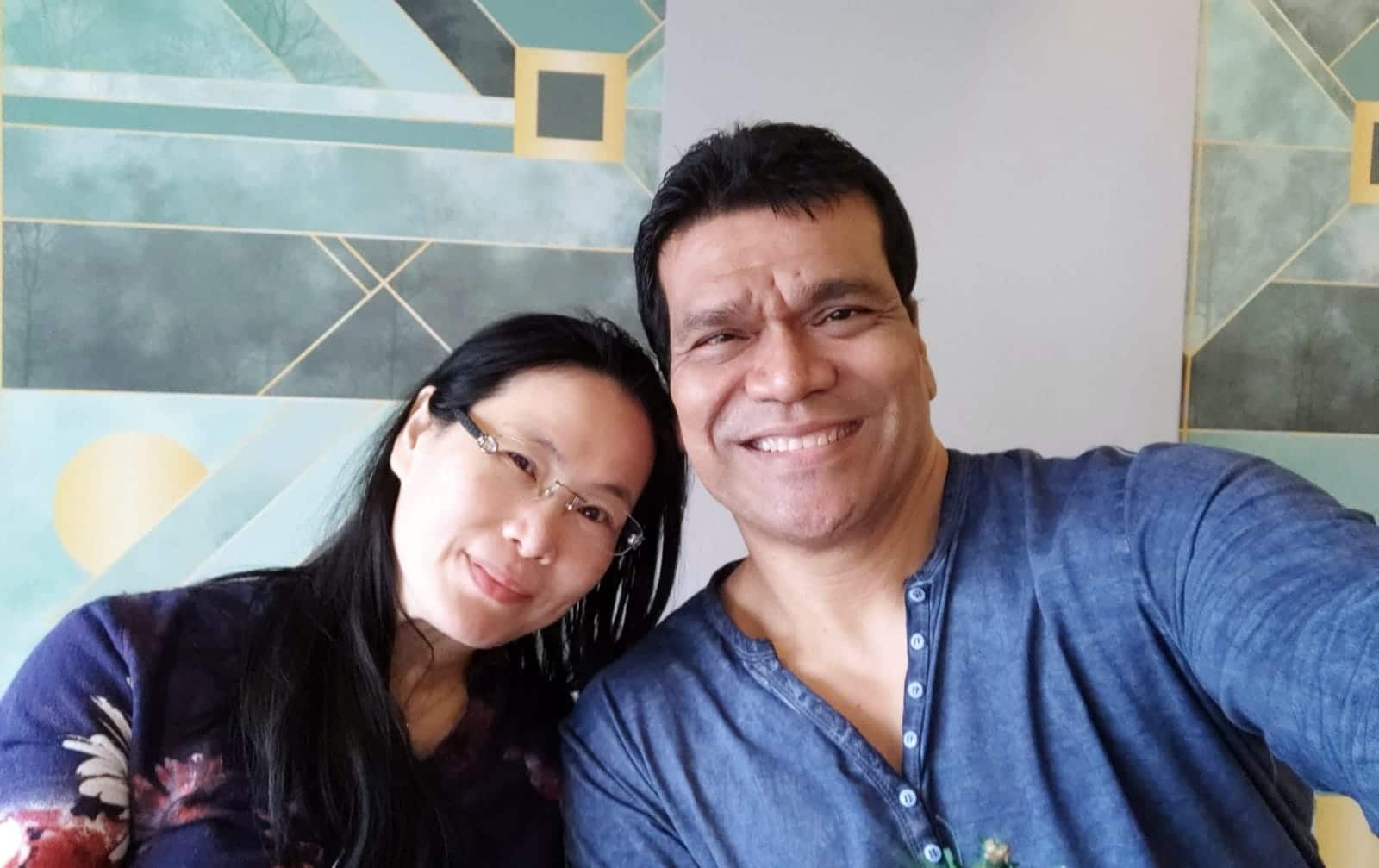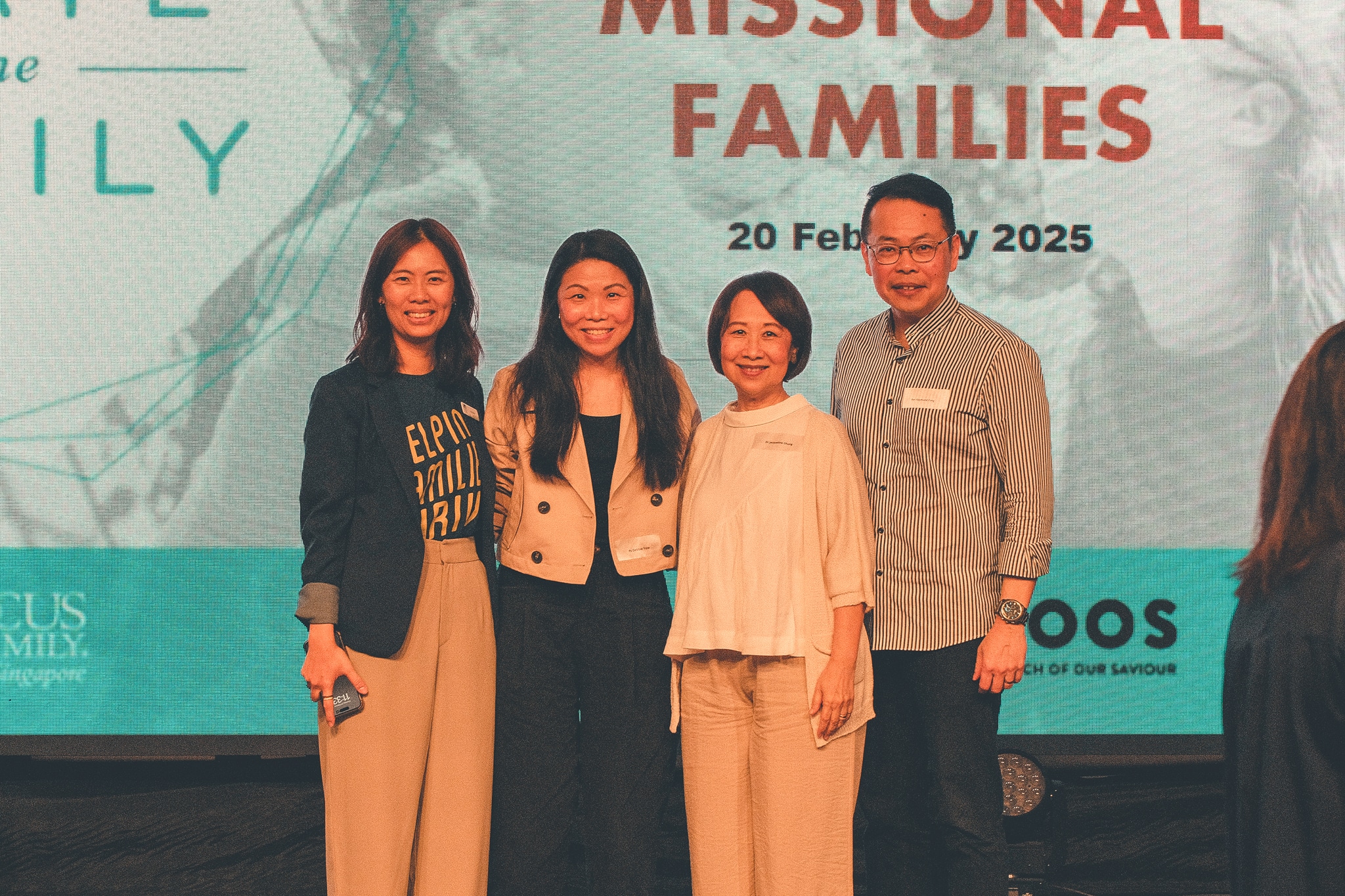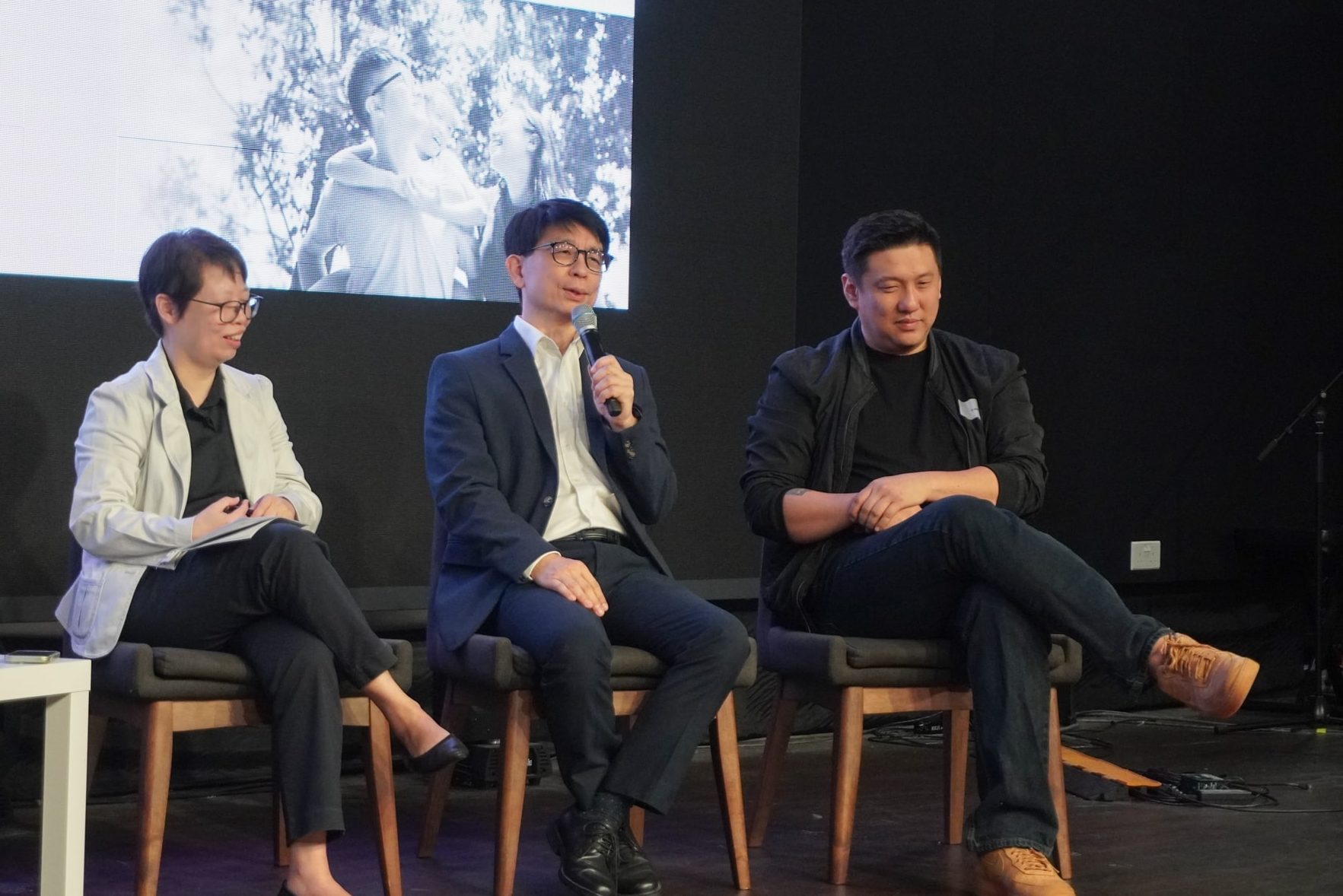
Netflix
“Wah, I’m so glad I can buy what I want with money!”
A friend made this exclamation in jest as we were watching an episode of Black Mirror called ‘Nosedive’.
If you know about Black Mirror, then you know exactly what I’m talking about.
The hugely popular, award-winning Netflix series pushes the concept of technology to a frighteningly dystopian extreme. Part sci-fi, part psychological thriller, epic storylines are created around otherwise unremarkable characters and everyday technology. In other words, that could be you and me in the story.
Its creator, Charlie Brooker, said: “The black mirror of the title is the one you’ll find … in the palm of every hand – the cold, shiny screen of a TV, a monitor, a smartphone.”
To see what he means: Tap the sleep button on the phone, iPad or computer you’re using now. Black. Mirror.
Some episodes feature cutting-edge technology. But ‘Nosedive’ plays out the darkest aspect of society’s captivation with social media. In it, you constantly rank, and get a ranking from, whomever you cross paths with. This is real-time Tinder happening with an Uber rating that has socio-economic consequences in real life. Crazy? The crazy thing is … it’s possible.
The system is being tested as we speak.
Nosedive
Imagine yourself in a lifestyle – the home you live in, the transport you take, the food you eat, the jobs you are offered – dictated by the judgement of anyone and everyone you meet. A life governed (and limited) by the perception that society has of you.
Lacie, the lead character in ‘Nosedive’, is obsessed with her ratings. And – spoiler alert! – the show’s storyline follows her as she nosedives from a solid, but unspectacular, rating of 4.2 (out of 5) to a social-misfit-locked-up-in-a-cell 1.0 rating.
Watching this, I saw a stark contrast between social and financial capital. But it also highlighted to me the freedom we have as Christians.
In ‘Nosedive’, you constantly rank, and get a ranking from, whomever you cross paths with. This is real-time Tinder happening with an Uber rating that has socio-economic consequences in real life.
In Lacie’s world, they traded with social capital. Subjective and punitive, superficial and judgemental … all at once.
Simple logic: If people like you, you live the good life – societal acceptance, special perks. But the reverse is also true: If people dislike you or turn against you, then life becomes a nightmare that even money cannot help.
Somewhere in the midst of her ratings crash (which happened because of a “double jeopardy” effect for a social faux pas she made) Lacie was a 2.5. The only car that she was “allowed” to rent was the worst of the lot – a little, beat-up old car with instructions in Czech!
Having your choices (and freedom) limited by your social ranking … isn’t it outlandishly ridiculous?
Not really.
We might be accosted by the absurdity of it now. But we are already living it to a lesser extent. And, truth be told, today we live in a world that does exactly the same thing, just with a different currency.
My friend’s comment hit the bulls-eye. Money does give you the freedom to choose. You buy what you want, go where you choose. Cold, hard cash carries a certain kind of power. Because if you have enough of it, it may even allow you to circumvent legal boundaries.
But both financial and social capital enslave people. More, more, more! I need more. I’ll work for more. I’ll sell my soul so that I can have more.
Life becomes a popularity contest, an endless race to nowhere.
Asset of Grace
As Christians, we are aware of another otherworldly asset.
“You who have no money, come buy and eat!” (Isaiah 55:1) With the asset of Grace, we have wine without money and milk without cost. With it, we are even able to have eternal life and we continue to have sanctification and comfort for life.
Grace. Abundant, amazing Grace.
“… to each one of us grace has been given” (Ephesians 4:7).
Grace is a gift. A costly one, but a gift that costs us nothing because it is based entirely on the love of God and the finished work of Christ on the Cross.
No chasing needed, no work demanded of you – just believe and receive (John 3:16).
A life declared clean by the Word of God. A lifestyle governed by God’s deposit of Grace.
Still, the entire concept of Grace is absurd to us. Every other form of capital transacts as an exchange, a trade operating on demand and supply. I cannot exchange something for nothing. You cannot trade if you have nothing.
But that is Grace.
Grace says: “You have nothing, but I give you everything.” And the only requirement accompanying the gift of Grace is the instruction to pass it along: “Freely you have received; freely give.” (Matthew 10:8)
As recipients of Grace, the aim of our race, then, is not merely to achieve social acceptance nor financial independence. But, like Paul, it is to be givers of Grace to those around us and complete “the task of testifying to the good news of God’s grace” (Acts 20:24).
As recipients of Grace, we must operate on the principles of Grace in this world.
Otherwise, if we conduct ourselves on the principles of this world and deal only transactionally with people, then something is wrong. We are either the ungrateful servants that Jesus spoke of in Matthew 18 or we have not experienced Grace as it truly is.
Still, we can only give of what we have received. And with Grace being what it is, be we ungrateful or inexperienced, Jesus calls us to come, to drink of the living waters, to first freely receive and then to freely give.
That’s priceless.
In ‘Nosedive’, I’d be rated 1.0 and put into jail (with the friends who introduced me to Black Mirror). Financially, my bank account still needs regular salary top-ups. But in Christ, I have received a lavish Grace to live this life.
For that, I’m thankful.
We are an independent, non-profit organisation that relies on the generosity of our readers, such as yourself, to continue serving the kingdom. Every dollar donated goes directly back into our editorial coverage.
Would you consider partnering with us in our kingdom work by supporting us financially, either as a one-off donation, or a recurring pledge?
Support Salt&Light


